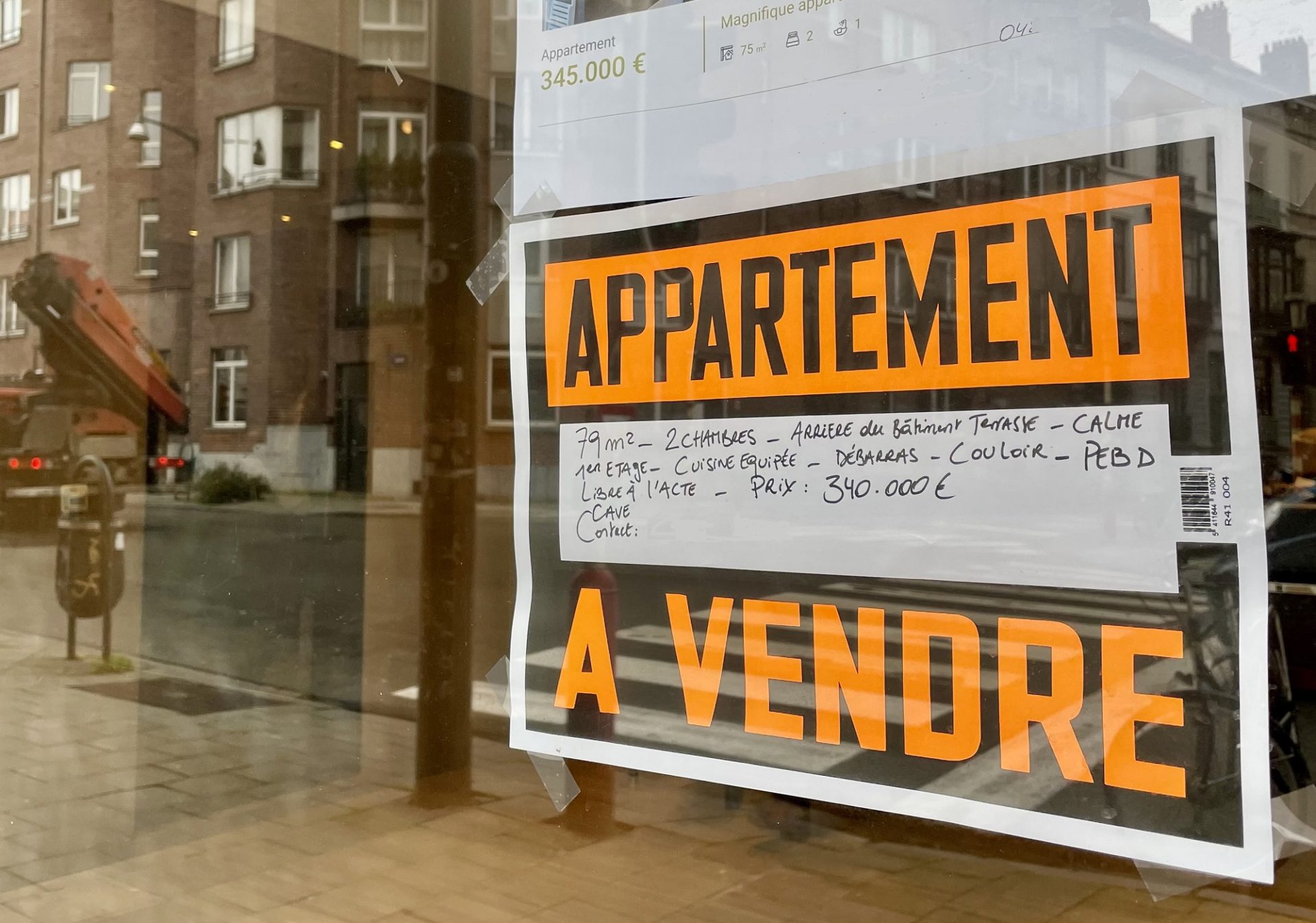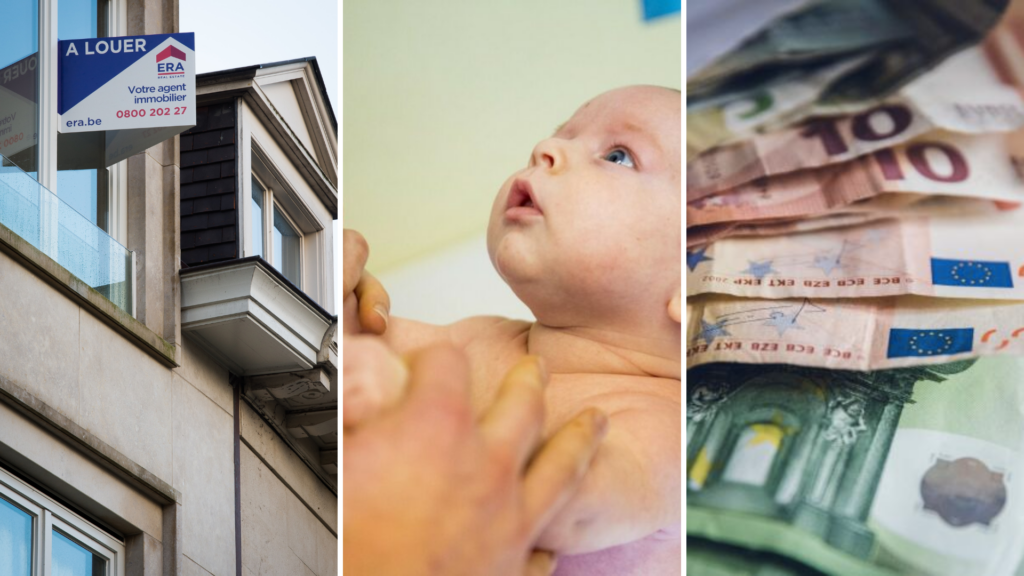Wednesday 1 November not only marks All Saints' Day, recognised as an official public holiday in Belgium, but it is also the start of a new month, meaning changes to laws and new rules coming into place.
From interest rates on savings accounts being raised and the re-introduction of rent indexation in Wallonia to financial housing assistance in Flanders and child benefits in Brussels, find out what changes this month.
Increase in benefits and pensions
October saw the first index jump in 2023 based on Belgium's smoothed health index, a figure used to calculate wage indexations for public sector workers as well as social security and pension increases. It is largely based on the consumer price index but excludes alcoholic beverages, tobacco products and certain kinds of fuel.
It surpassed the threshold required to trigger automatic salary and benefit hikes, which will result in an increase in unemployment benefits and pensions from November.
Public sector wages and social security benefits in Belgium are set to rise by 2% over the next two months, providing welcome relief to citizens still reeling from multiple crises over the past few years. However, many workers will have to wait until 2024 to benefit from it.
The increase in Belgium's smoothed health index comes in spite of the fact that the consumer price index – otherwise known as the headline rate of inflation – fell to 0.36% in October, down from 2.39% in September.
Interest rates
Due to changes in interest rates in the financial markets, Belgian bank Belfius has decided to adjust the base rate and fidelity premium on its savings accounts this month.
On the Belfius Fidelity savings account, the base rate will rise from 0.20% to 0.25%. The fidelity premium – earned on amounts that have repeatedly remained in the regulated savings account for 12 months after being paid into the account – will be 1.75%, compared with 1.05% previously, giving an overall interest rate of 2%.
The base rate on the traditional savings account will become 0.55% – an increase of 0.10%. The fidelity premium, meanwhile, will rise by the same amount to 0.55%, providing an overall interest rate of 1.10%.

Credit: Belga
Both savings accounts qualify for exemption from withholding tax (15%) on up to €980 of interest per year if the account is opened in a single name. It even extends to €1,960 for those opened in the name of two married people or two people registered as legally living together.
Meanwhile, MeDirect Belgium is launching a new online savings book with a basic interest rate of 2% – the highest in the market. Savers will also receive a loyalty premium of 0.80%, bringing the total interest rate for MeDirect Essential Savings to 2.8%. A maximum of €25,000 can be deposited in the online account.
Changes to Brussels' child benefit scheme
The Brussels child benefit scheme will introduce an additional condition for entitlement to social allowances, paid on top of the basic child benefit to families with limited income.
Until now, these allowances depended on family income, the age of the children and family size. But this month will see the cadastral income – which determines the rental value of a property – taken into account.
If the total, non-indexed cadastral income of that property exceeds €2,000, a family can no longer claim social benefits. The impact will be noticeable from the December payment.
Indexation of rents in Brussels and Wallonia
Owners of homes in Wallonia and Brussels that are not energy-efficient will once again be able to index the rents they charge tenants. This indexation was frozen last year in response to the sharp rise in energy prices to protect people living in poorly insulated homes.

A sign detailing a property that is up for rent. Credit: Helen Lyons / The Brussels Times
Since October 2022, only rents for homes with an Energy Performance Regulation (EPB) certificate with level A, B or C could be fully indexed; homes with lower scores required limited indexation or were banned altogether (for EPB level F and G). From 1 November, the system will return to normal.
Landlords of homes with a low energy performance rating could once again index their rents in Flanders from 1 October.
Housing help in Flanders
In Flanders, some people with limited income who rent property on the private rental market are entitled to two concessions: rent subsidy and rent allowance. Under these schemes, they receive a monthly amount to help pay the rent.
Among other things, a rent subsidy can be requested by people moving to "suitable" or new rental accommodation. From 1 November, being eligible for a rent subsidy no longer requires a person to register on a waiting list for social housing.
Related News
- Smoke-free generation by 2040: Belgium steps up campaign against tobacco
- Brussels to tackle drug and homelessness crisis in Metro stations
- Paid subscriptions available for ad-free Facebook and Instagram from November
Meanwhile, a housing premium helps people who have been on the waiting list for social housing for four years consecutively. However, the property that the person is renting must be compliant and meet all of the Flemish Housing Code's quality standards.
Until now, the application involved a conformity check, which checks whether the rental property meets these standards, but this condition will be dropped. If a house has already been declared unsuitable, uninhabitable or overcrowded at the time of the application, the person will not receive a rent subsidy. In other cases, it is assumed the house meets the necessary standards.
Other changes
From 1 November, the Justice Ministry will stop sending physical copies of traffic fines for citizens who have already activated their eBox (a free electronic mailbox that allows users to receive official documents from government departments). In case of non-payment of a traffic fine received via the eBox, reminders will be sent by post.
Telecom provider Telenet will today discontinue its Wifi service Wi-Free which made it possible for Telenet customers to surf via public Telenet hotspots and via hotspots of other Telenet customers.

Credit: Belga
As of Wednesday, Disney+ subscriptions will become more expensive. Customers will have to pay €10.99 a month, instead of the current €8.99 a month, or €109.90 a year instead of €89.90.
Finally, later this month, the first draw of the new European lottery EuroDreams will take place. The Française des Jeux has created a new draw game in cooperation with nine other European lotteries, including Belgium.
It is a traditional draw game: participants choose several numbers on a game sheet and whoever predicts all the numbers correctly wins €20,000 a month for 30 years, amounting to €7.2 million. The second prize category sees people earn €2,000 per month for five years, or a total of €120,000. The first draw is scheduled for Monday 6 November.

